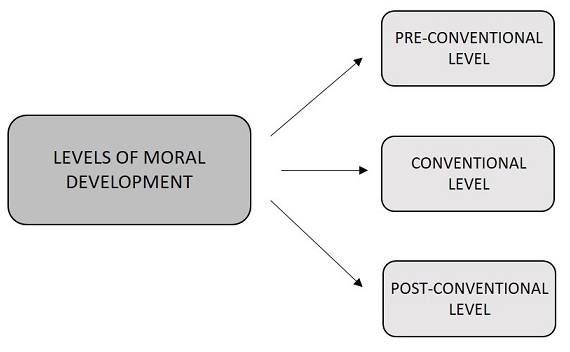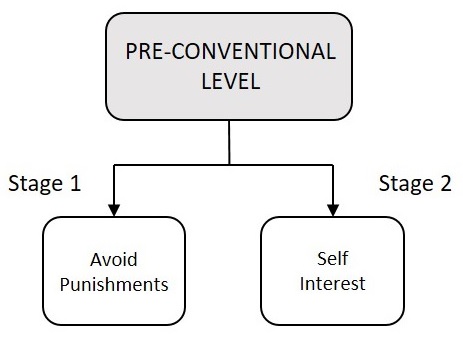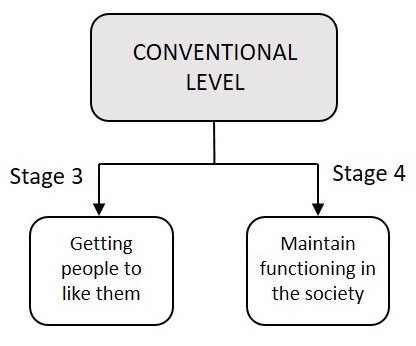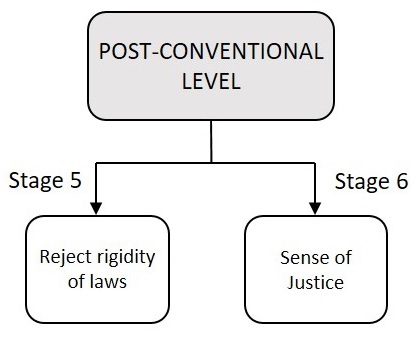
- Engineering Ethics Tutorial
- Engineering Ethics - Home
- Engineering Ethics - Introduction
- Engineering Ethics - Moral Issues
- Moral Dilemmas
- Moral Autonomy
- Kohlberg’s Theory
- Heinz’s Dilemma
- Engineering Ethics - Gilligan’s Theory
- Professions and Professionalism
- Engineering Ethics - Ethical Theories
- Social Experimentation
- Balanced Outlook on Law
- Responsibility for Safety
- Chernobyl’s Case Study
- Bhopal’s Gas Tragedy
- Responsibilities of Engineers
- Engineering Ethics - Confidentiality
- Rights of Engineers
- Engineering Ethics - Global Issues
- Moral Leadership
- Engineering Ethics Useful Resources
- Engineering Ethics - Quick Guide
- Engineering Ethics - Resources
- Engineering Ethics - Discussion
Engineering Ethics - Kohlberg’s Theory
Lawrence Kohlberg was a professor at Harvard University during the early 1970s and was famous for his works on developmental psychology. He conducted many studies at Harvard’s Center for Moral Development and proposed a theory on moral development which is popularly known as Kohlberg’s theory.
His theory of moral development was dependent on the thinking of the Swiss psychologist Jean Piaget and the American philosopher John Dewey. He was also inspired by James Mark Baldwin. These men had emphasized that human beings develop philosophically and psychologically in a progressive fashion.
Lawrence Kohlberg’s Theory
Kohlberg proposed that people progress in moral reasoning based on their ethical behavior. He postulated this theory based on the thinking of younger children throughout their growing period as adults. He conveyed that younger children make judgment based on the consequences that might occur and the older children make judgment based on their intuitions.
He believed that there are six stages of moral development which are further classified into three levels. The following illustration shows the different levels.

The process being discussed here is about the judgment made by the thinker about the protagonist in a given situation. The steps of the thinking process show the moral development of the thinker.
Pre-conventional Level
This can be understood as the first level of moral thinking, which is generally found at Elementary school level. The thinker at this stage tends to think and behave based on the direct consequences that might occur. There are two sub-stages in this.

Avoid Punishments
A thinker at this stage generally thinks and believes that the judgment are to be made as per the socially acceptable norms as they are said so by some higher official (a teacher or a parent). This is a child-like obedience, in order to avoid punishments.
These thoughts are based on the idea that the protagonist should not disobey the law or rules.
Self–interest
A thinker at this stage, shows interest in making decisions according to the rewards they get in exchange. This second stage is characterized by a view that right behavior means acting in one's own best interests.
In this stage, they tend to follow the rules of authority because they believe that this is necessary to ensure positive relationships and societal order.
Conventional Level
This can be understood as the second level of moral thinking, which is generally found at the primary and high school level. The thinker at this stage tends to think and behave based on the want to please others. There are two sub-stages in this.

Getting people to like them
At this stage, the ideas of the society are considered. This level can be that where the protagonist behaves on account of the moral grounds which people decide for decision making. This decision may or may not support the law. Whatever the result is, the thinking process is based on how to impress others or society and on how to please the people around.
Maintain functioning in society
A thinker at this stage, considers to follow the rules for the good of the society. The moral grounds on how people in the society will consider the job done will be the priority, because the thinker believes that a social order is maintained by abiding by the rules.
Hence a thinker sticks to the idea that the protagonist should follow the moral values. The thinker’s behavior is driven by the authority while his thinking conforms to the social order.
Post-Conventional Level
This can be understood as the third level of Moral thinking, which is generally found after the high school level. The thinker at this stage tends to think and behave based on a sense of justice. There are two sub-stages in this.

Reject rigidity of laws
In this level, the thinker uses his moral thinking skills at a commendable pace. He starts to feel for the protagonist based on moral grounds. He also might have an opinion that the rules have to be changed according to humanitarian values. The thinker rejects the rigidity of the existing laws and rules at this stage.
Sense of justice
This is the pinnacle stage of Moral development where the thinker feels a sense of justice for the protagonist. The thinker has great moral values that he keeps himself free from the external factors that might influence his thinking process.
These are the three main sections of moral development proposed by Lawrence Kohlberg. Let us now try to have some detailed idea on this with an example.